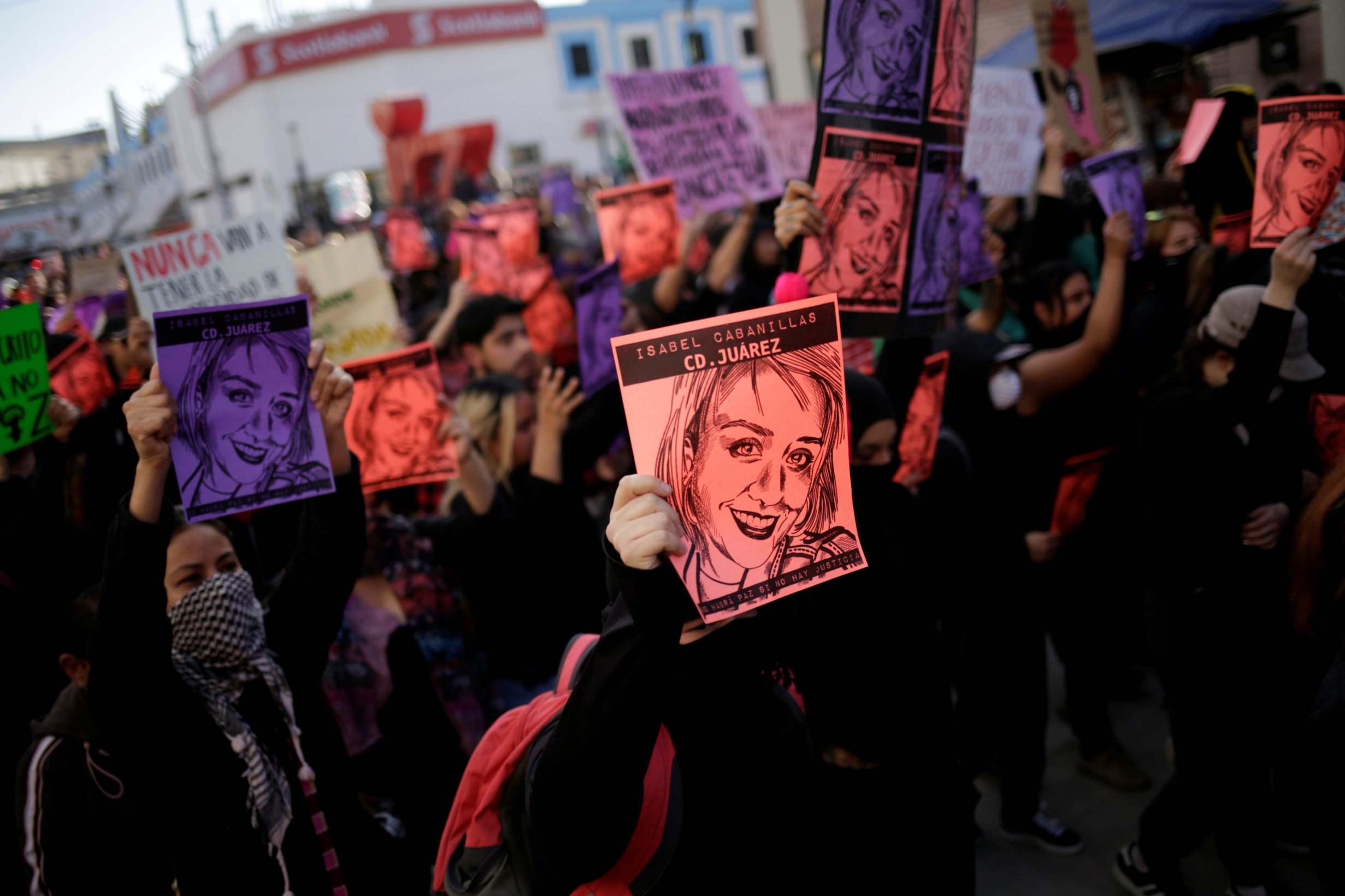
Ciudad Juárez marches to honor Isabel Cabanillas and all lost to femicide in Mexico
A week after the murder of artist and activist, droves of protestors marched to demand for justice.
In 2019, Ciudad Juárez, Mexico averaged four homicides a day and ended the year one murder shy of 1,500.
That’s according to data collected by El Diario, a local newspaper in the city.
Another local paper’s data shows 2020 hasn’t started well either. In 29 days, 64 people have been killed for an average of more than two per day.
Beyond the sheer number of murders, Ciudad Juárez is also notorious for the amount of women who are victims, also known as femicide.
One of those murders was of artist, activist and mother Isabel Cabanillas, shot in the head as she pedaled home from a bar in the early-morning hours of Saturday, Jan. 18.
Her murder set off a series of protests against femicide from Ciudad Juárez to Mexico City.
In the immediate days following the murder, Cabanillas friends organized small to medium-sized marches in both cities, but on Saturday, Jan. 25, Ciudad Juárez played host to the biggest demonstration.
The El Paso Times described the day as one of “outrage,” as protestors marched through the heart of Ciudad Juárez to its northern edge and blocked the bridge to the U.S.
“U.S. Customs Protection and Border Protection officers blocked vehicle lanes and prevented pedestrian border crossers from entering the U.S.,” wrote reporter Aaron Montes.
RELATED CONTENT
Much like the previous marches, the protestors demanded answers from government officials for Cabanillas’ murder, which still has yet to be solved. Another prominent message on Saturday was “Ni una menos,” the rallying cry against femicide across Latin America.
In the last three years, there have been more than 3,000 femicides in Mexico. There were 311 in Ciudad Juárez in that time frame, according to a study released by El Heraldo.
As a border town, Ciudad Juárez has long been the center of drug and human trafficking heading north into the U.S. or south into Central and South America.
Conflicts between the drug cartels and gangs that operate these covert infrastructures is what often leads to high rates of violence.
There is no determined motive for Cabanillas’ murder and the government remains silent, but many believe she was targeted for her activism.
“I know Isabel felt like she was being watched,” a friend of hers told NPR.
In death, Cabanillas now has an army at her back fighting for justice on her behalf. Whether it bears fruit is another story.










LEAVE A COMMENT: